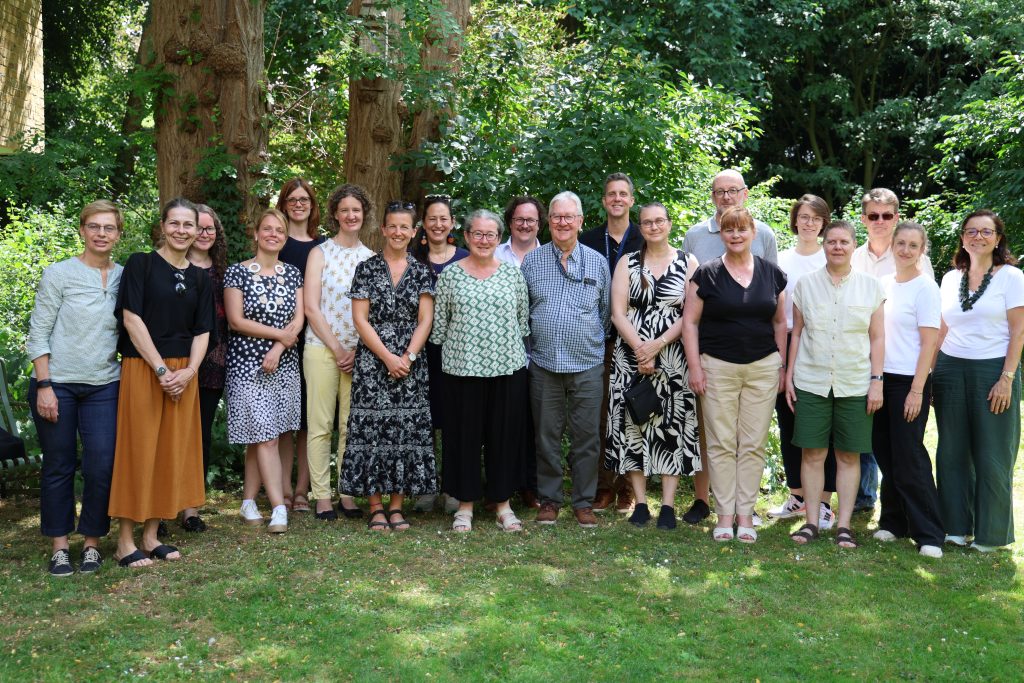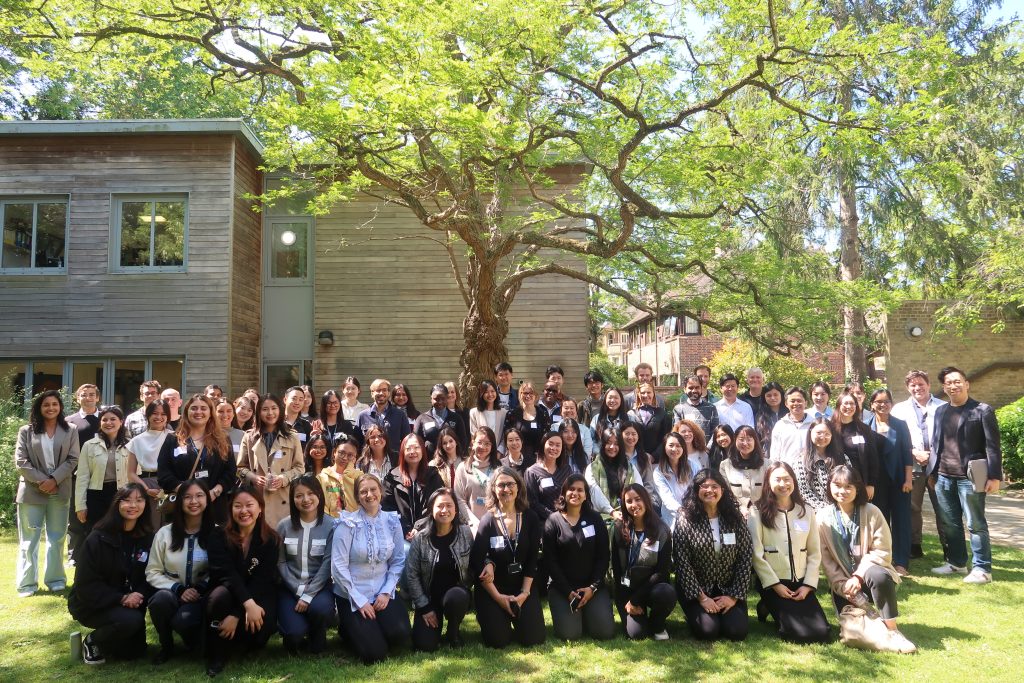Mobility, working, learning and place in a time of pandemic
By Imogen Casebourne (Research Student, Learning and New Technologies Research Group, Department of Education)
Over the course of my studies I have been thinking about mobility and place in the context of learning for work. Recent events have thrown some of the issues I have been considering into sharp relief.
Suddenly mobility has been hugely restricted for many, but not for those whose movements between places of work, or whose movement from home to a specific workplace are essential for society to function (even if at risk to themselves). Others who can only work in a specific location, but whose work is not regarded as essential at this time find themselves unable to work at all. Finally there is another group, who may typically travel to a place of work but in theory at least are able to work from home. For this third group of individuals place is, in theory, not especially relevant to their work, which, again in theory can be done anywhere.
But as this third group of people suddenly found themselves confined to their homes, it became very apparent that a formal function of place is to exclude some activities in order to enable others. For example, most workplaces, as well as most places of formal study, such as lecture theatres and University libraries, typically exclude young children, so that activities related to caring for children must happen elsewhere. Today, many individuals attempting to work from home also find themselves attempting to teach and care for their children in their home at the same time.
While the occasional intrusion of children into an apparently non-appropriate workplace context can be charming, as with the BBC commentator who was suddenly joined by his children while live on air, the reality is that households and homes are unequal places. Obviously homes may be more or less well equipped with technology that enables communication with others, which is a problem in itself, but they are also different sizes and shared with more or fewer people. This means that they afford very different opportunities to distance oneself from other activities and other people in the home in order to concentrate on work or learning. Finally, roles within households may be gendered and there are concerns that evidence from previous pandemics suggests that a prolonged period of lack of access to public spaces set aside for work or study during a pandemic may lead deepening gender inequity. For example, there appears to be anecdotal evidence that during the pandemic publication rates may have decreased for female academics.
These types of concern were quickly raised by students and other commentators. For example, final year students asking for the choice not to take exams online, on the grounds that not all students would have access to a quiet environment in which to do so.
Learning technologies have obviously been hugely important in enabling learning to continue through this crisis, and things might have been much more difficult without them. In the first weeks of the lockdown I was invited to online meditation classes and realised that I could take a virtual tour of many of the world’s great museums or national parks. Meanwhile friends started learning languages, taking music classes and educating their children with the help of online resources such as Khan Academy, and for the past weeks, I have taken part in daily live virtual exercise classes.
However, learning technologies cannot by themselves eradicate existing inequalities of access to place or availability of discretionary time, while unequal access to devices and unequal quality of connection may introduce other inequalities. For example, a German study suggested that individuals whose poor bandwidth had the effect of slowing their speech as it was heard by other online participants, might be perceived as mentally slower by those other participants. Perhaps with these types of issue in mind, some commentators on equality have added the term ‘situational impairment’ to their lexicon.
Today in the UK there has been a heated debate about when children should return to school, and alongside all important considerations about the safety of all involved, concerns about the potential disadvantages of online learning for some are rightly a part of that debate. If were to turn out that a return to the previous practices associated with learning at educational institutions remains unsafe for some time to come, a broader debate may be needed about other ways in which current inequalities might be addressed.
Meanwhile, for workers in the UK who are unable to go to work at present and have therefore been furloughed, one of the few work related activities that is currently permitted while furloughed is work related learning. Presumably, that would be demanding for those who are also home schooling, but it is notable that there has so far been relatively little coverage or debate about what, if any, work related learning activities this group may be undertaking and what their experiences have been.
Notes:
BBC Commentator interrupted by his children https://youtu.be/Mh4f9AYRCZY
Online learning resources mentioned in this blog
Example virtual exercise classes, there are many more
https://www.pranayogaoxford.com/
The Khan academy
https://www.khanacademy.org/login
Live mindfulness sessions
https://oxfordmindfulness.org/online-sessions-podcasts/
Online tours
https://www.virtualiteach.com/post/2017/08/20/10-amazing-virtual-museum-tours
Online language learning
https://begin.babbel.com/en_gb/multilanguage_selection_brexp/
General resources
https://www.marchnetwork.org/creative-isolation
Related studies into work, learning and mobility
Bekerman, Z., Burbules, N., & Silberman-Keller, D. (2006). Learning in Places: The Informal Education Reader. Peter Lang Publishing Inc.
Billett, S. (2013). Mimetic Learning in Circumstances of Professional Practice. In Technology-Enhanced Professional Learning: Processes, Practices, and Tools (pp. 85–96).
Cohen, R. L. (2010). Rethinking “mobile work”: Boundaries of space, time and social relation in the working lives of mobile hairstylists. Work, Employment and Society, 24(1), 65–84.
Jamieson, P., Fisher, K., Gilding, T., Taylor, P. G., & Trevitt, a C. F. (2000). Place and Space in the Design of New Learning Environments. Higher Education Research & Development, 19(2), 223–235.
McNeill, B. (2014). Time and the Working Online Learner. In Barbera, E., & Reimann, P. (Eds.) Assessment and Evaluation of Time Factors in Online Learning and Teaching (pp. 24–62). IGI Global.
Schoenenberg, K., Raake, A., Koeppe, J. (2014) Why are you so slow? – Misattribution of transmission delay to attributes of the conversation partner at the far-end. In International Journal of Human-Computer Studies (pp. 477-487).
Sharples, M. (2019). Seamless learning: Continue learning across locations, technologies and activities. In Practical Pedagogy 40 new ways to teach and learn (pp. 54–58). Routledge.
Wacjman, J. (2016). Pressed for Time THE ACCELERATION OF LIFE IN DIGITAL CAPITALISM. University of Chicago Press.
A selection of articles and blogs written in response to changes in working and learning caused by the pandemic
https://www.theguardian.com/world/2020/mar/20/coronavirus-impossible-mother-tirade-remote-schooling
https://www.nytimes.com/2020/04/22/us/politics/women-coronavirus-2020.html








